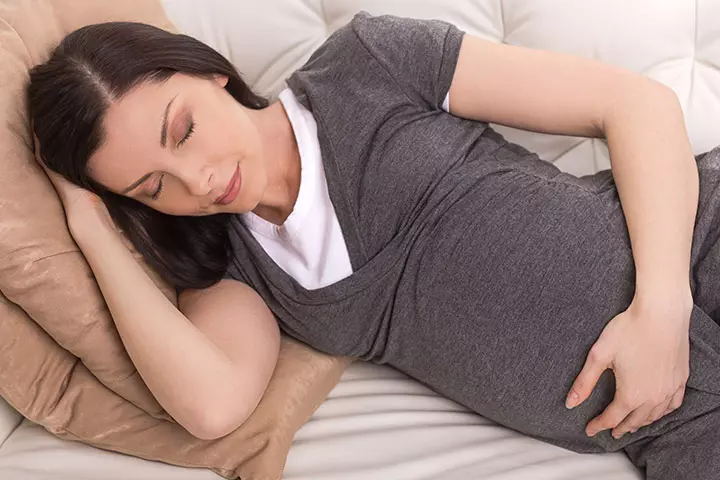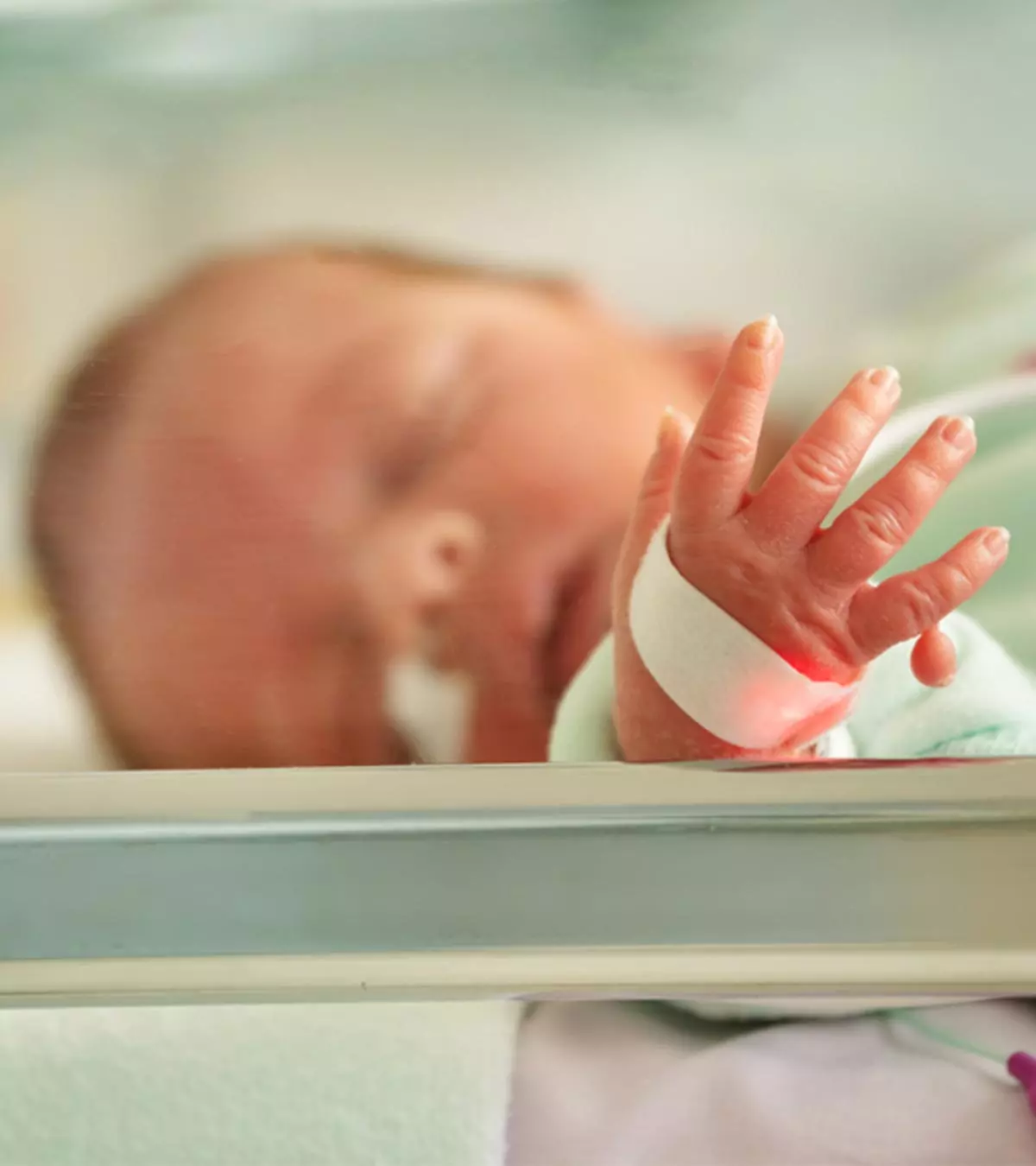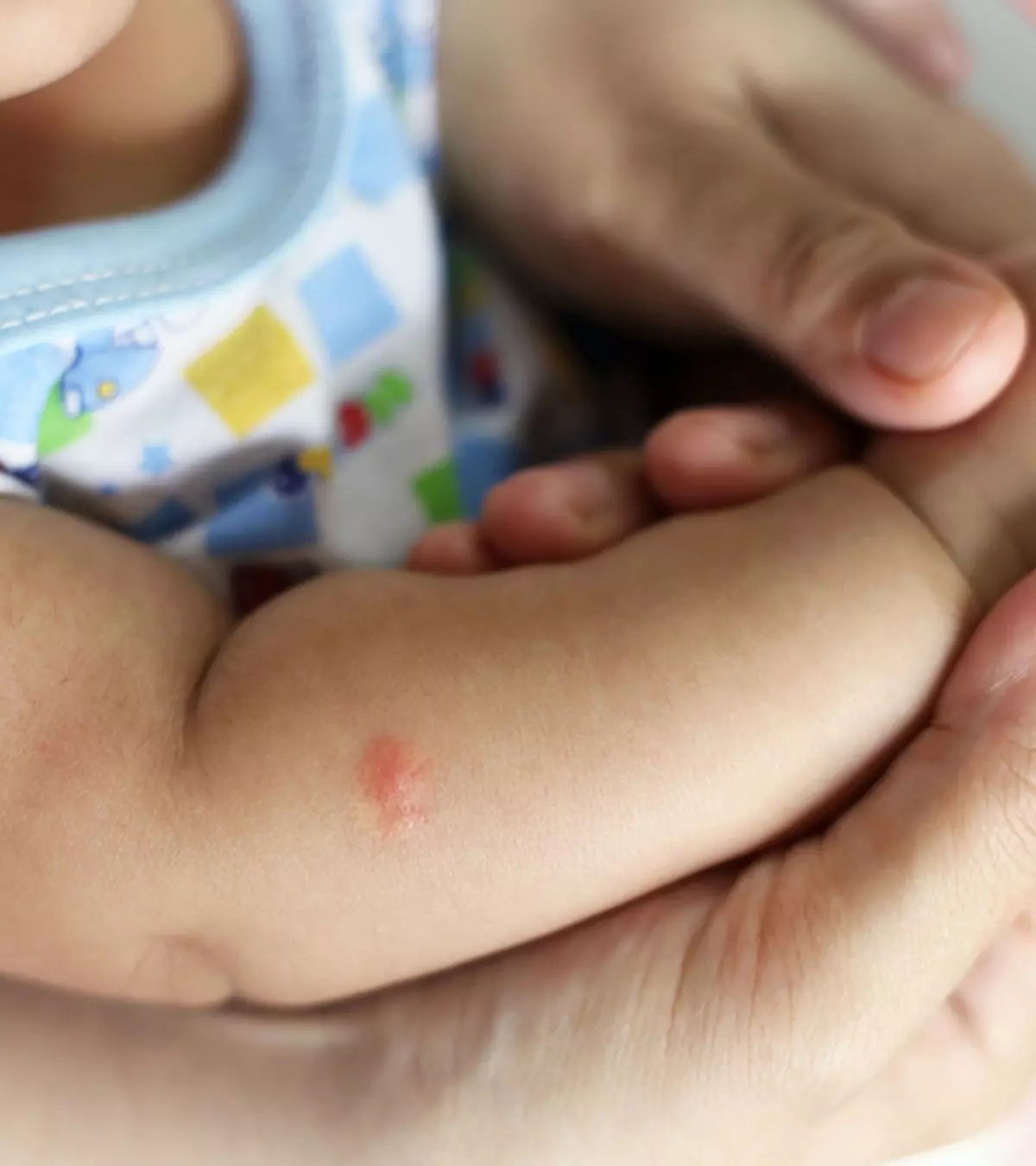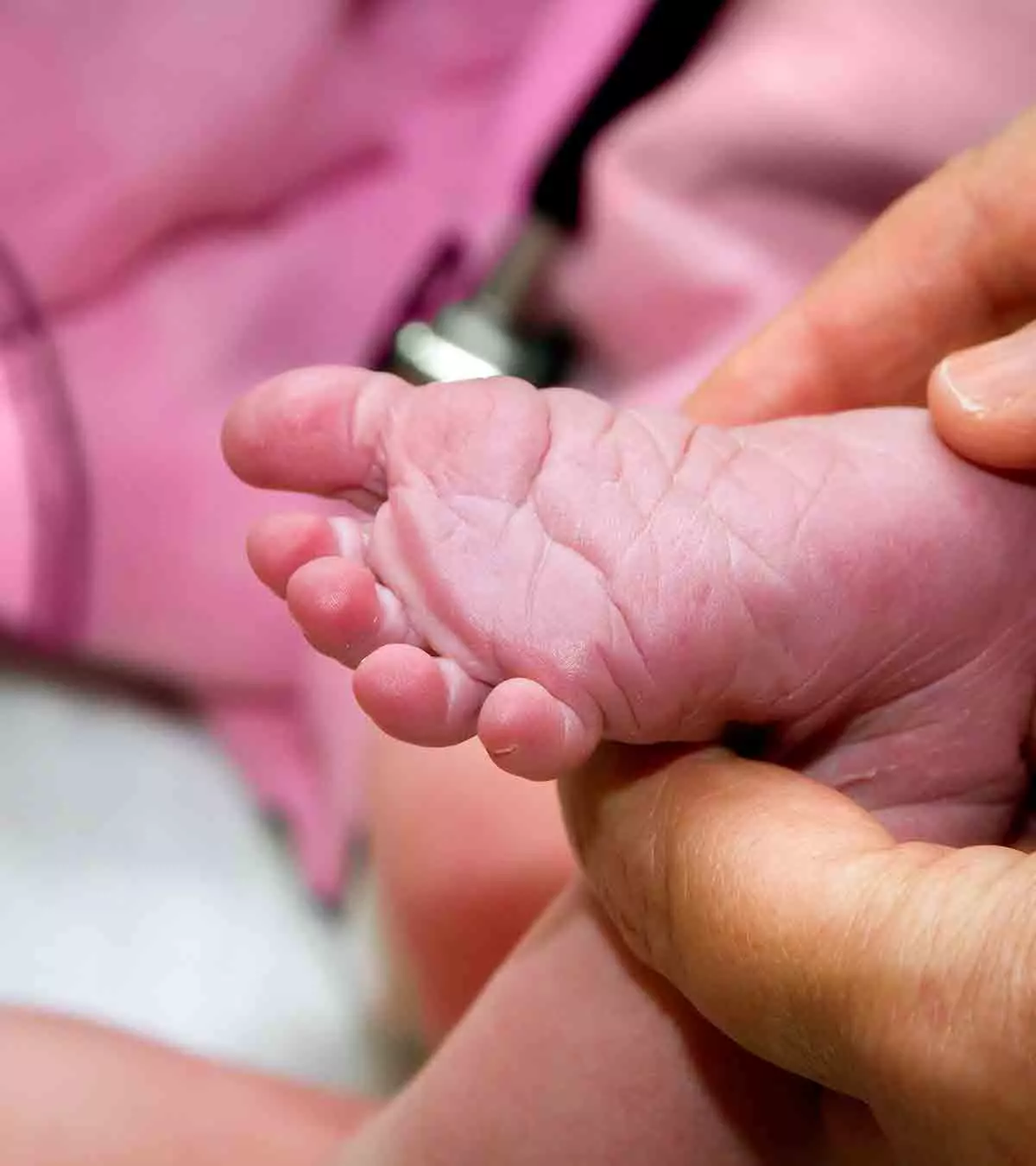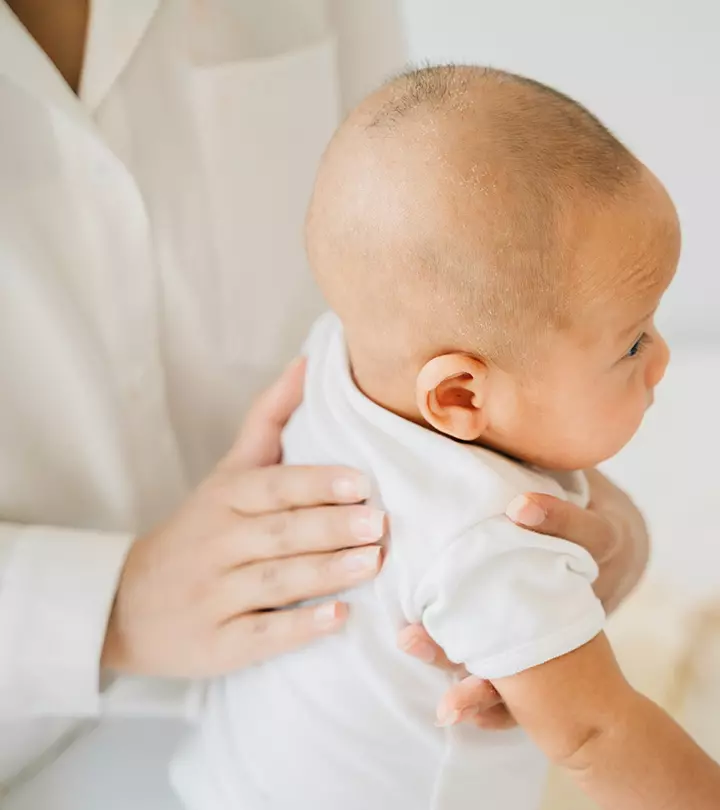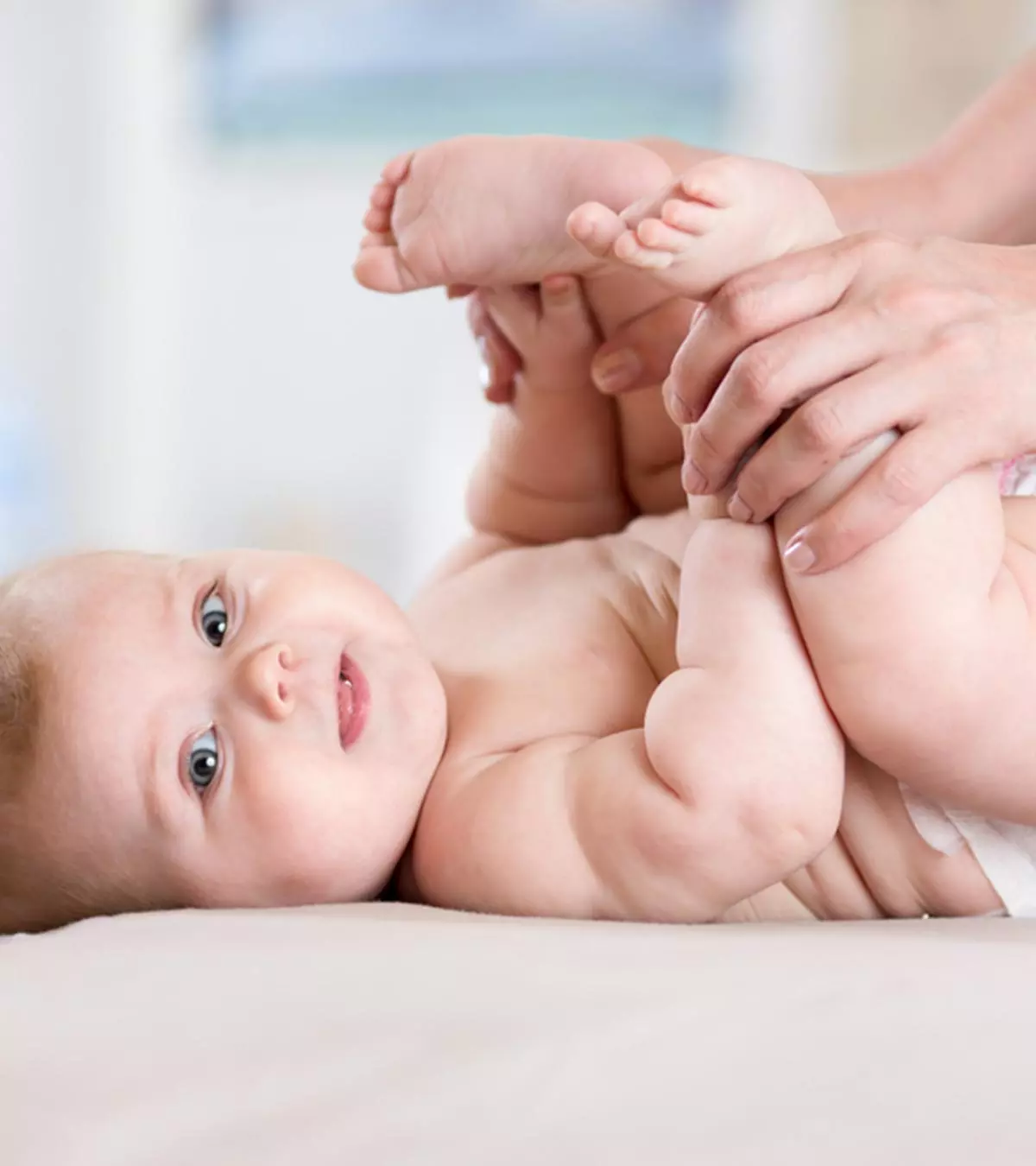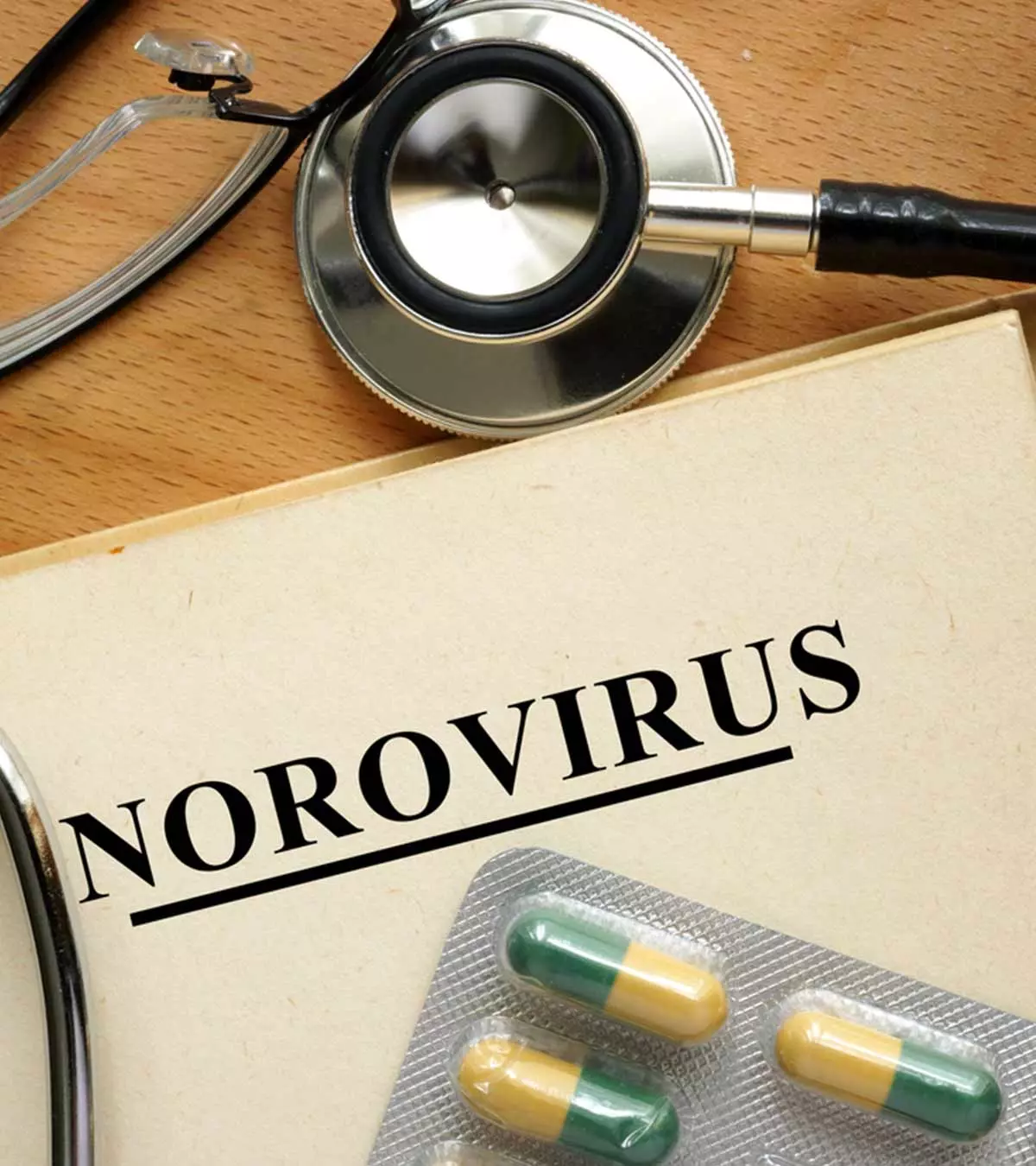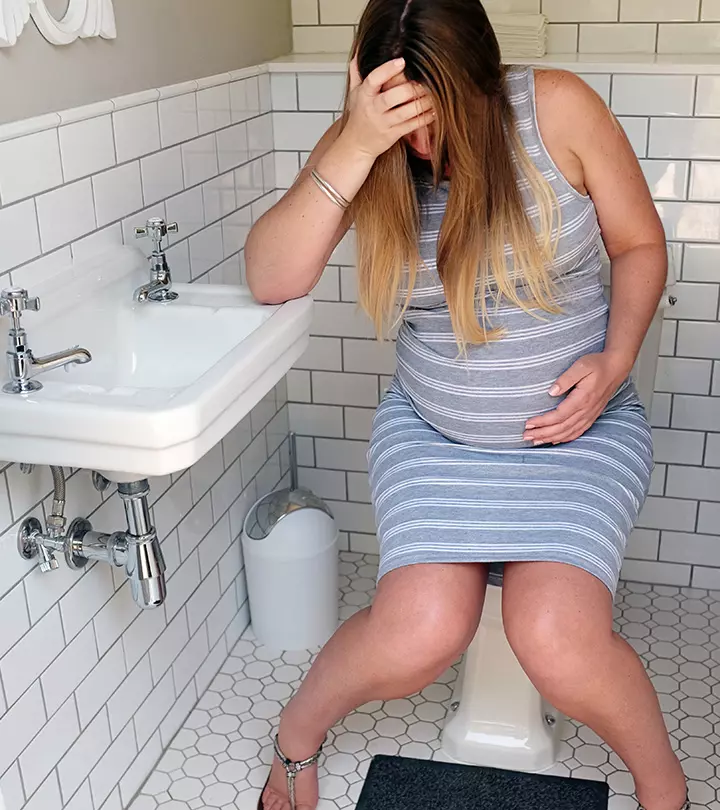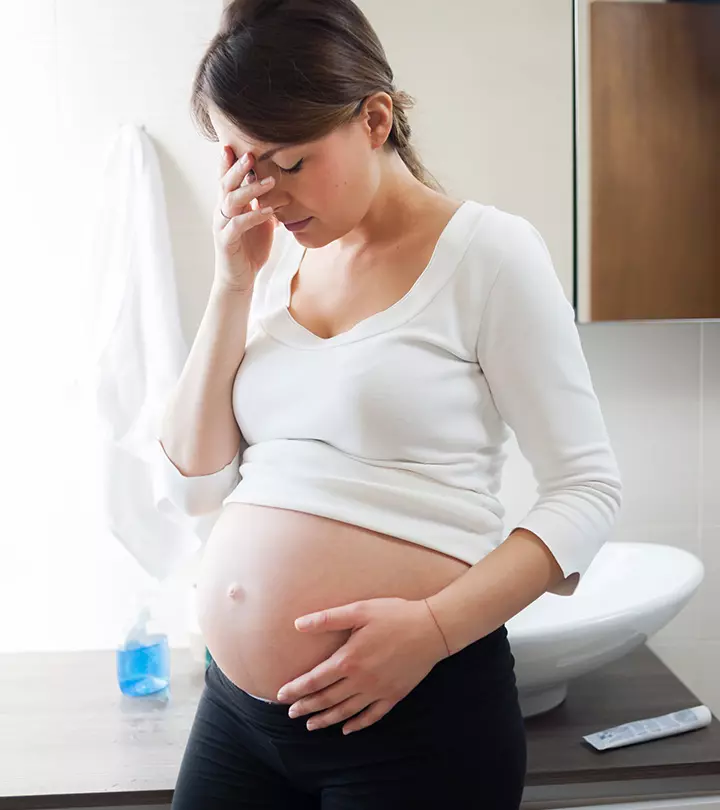
Image: iStock
Belly button pain during pregnancy occurs as the trimesters progress. This is because the abdomen tries to accommodate the growing fetus. However, not many women experience this pain near the navel. Also, the pain may or may not appear in each pregnancy. The good news is that, like the other pregnancy symptoms, even this belly button pain vanishes after delivery. Understanding belly button pain is crucial for expectant mothers, as it can indicate normal physical changes or signal the need for medical attention. Awareness of the causes and symptoms will empower women to seek appropriate care when necessary. Read on to know the reasons behind belly button pain in pregnancy, signs to watch out for, and home remedies to help soothe the pain.
Understanding belly button pain is crucial for expectant mothers, as it can indicate normal physical changes or signal the need for medical attention. Awareness of the causes and symptoms will empower women to seek appropriate care when necessary. Read on to know the reasons behind belly button pain in pregnancy, signs to watch out for, and home remedies to help soothe the pain.
Key Pointers
- Belly button pain during pregnancy could be caused due to pressure from the uterus, stretching, infection, or umbilical hernia, among other reasons.
- Having a belly button piercing may also cause pain.
- Some ways to deal with it are sleeping on the side, wearing loose clothing, and using a lukewarm compress.
- If this pain is accompanied by vaginal bleeding, contractions, or fever, visit your doctor.
Causes Of Belly Button Pain In Pregnancy
Belly button pain can be felt anytime in the pregnancy due to various body changes. However, most women may experience belly pain from the second trimester as the baby begins to grow significantly from this time. Women with inward dipping (innies) and outward dipping (outies) of the belly button may feel this pain.
Common causes of belly button pain in pregnancy may include (1) (2):
- Stretching: Abdominal muscles and skin in the belly can be stretched to accommodate the growing fetus during pregnancy. Stretching of any previous scars near the belly button can also cause soreness and pain in pregnant moms.
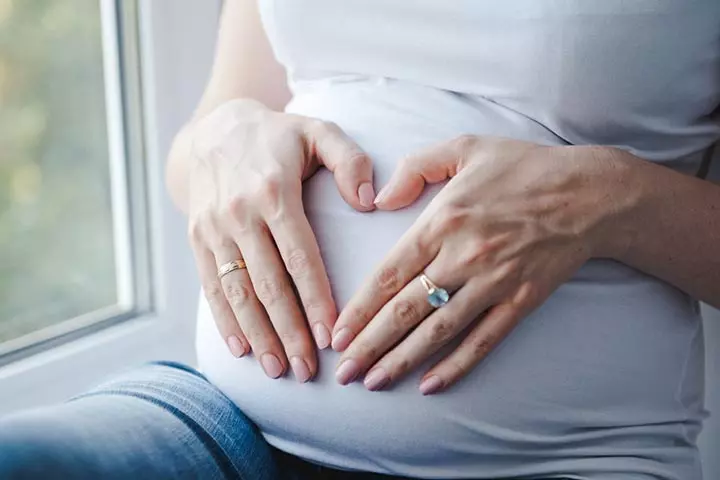
- Pressure from the uterus: Some women may feel belly pain since the growing uterus puts pressure around the belly button.
- Protruding belly button: Women with belly buttons dipping outward can have skin irritation and pain in the belly area due to friction with clothing. Some women experience an outie belly button during pregnancy as their inward belly button pops out, often in the second or third trimester. This may often occur in the second or third trimester in many cases. Many women may experience popping out of the belly button around 26 weeks of pregnancy. This is painless; however, rubbing on clothes can cause pain(3).
Dr. Alan Lindemann, MD, an obstetrician, maternal mortality expert, and former clinical associate professor at the University of North Dakota, says, “Multiple factors, including how many babies you have had, your degree of physical fitness, and your inherited anatomy, work together to determine when exactly your belly button will pop out.”
- Intestinal infections: Abdominal pain on the belly button area can also be felt during stomach flu (gastroenteritis) and other intestinal infections. Other symptoms such as vomiting, nausea, fever, and diarrhea can also be seen in such cases.
- Umbilical hernia: Some women can have new onset or existing umbilical hernia during pregnancy. This can be painful as the loop of the intestine or tissues pushes through the belly button.
Stephanie, mother of two girls and a blogger, shares about the diagnosis of umbilical hernia when she was pregnant. She says, “My pregnancy (first pregnancy) was awesome. However, I noticed my belly button popped out around 4 months. I thought that was odd, but didn’t allow myself to worry. Later, I found out it was a hernia.” She further shared how she continued to experience painful bulging during certain situations even after pregnancy and during her second pregnancy as well. After her second pregnancy, she decided to visit a general surgeon. She says, “I decided to see a general surgeon. He confirmed that I have Diastasis Recti. I spoke to the G.S. about what I was experiencing and he didn’t think I could have a hernia near my diaphragm. I told him that it bulges out when I give my abs a workout, cough, sneeze, laugh, etc. So, he ordered a CT scan. The CT scan showed only an umbilical hernia (i).”
- Navel piercing: Some women may experience a belly button ache due to skin irritation or infection from navel piercing during pregnancy. The skin may become more tender and sensitive in the pregnancy, with an increased risk for infections and inflammation at the piercing sites (4).

- Patent urachus: This is an extremely rare cause of belly button pain in adults. Urachus connects the umbilicus and bladder during fetal life, and it usually closes at birth. In rare cases, this can stay unclosed (patent) and cause belly button pain.
 Point to consider
Point to considerThere may be several general causes of belly button pain not specific to pregnancy. In case of severe belly button pain, consult your gynecologist or physician immediately.
Dr. Robyn Horsager-Boehrer, Chief of Obstetrics and Gynecology at UT Southwestern Medical Center’s William P. Clements Jr. University Hospital, says, “Although there is no satisfying explanation for exact causes of belly button pain during pregnancy, some pregnant mothers may experience the pain even with the touch of ultrasound transduceriA device used in ultrasound technique that generates sound waves and helps create images of internal organs around the belly button.”
“The belly button has a key role in fetal life. But it is not connected to anything in adults. This clarifies common misconceptions regarding belly buttons such as it is tugging abdomen to the navel or connected directly to uterus, placentaiOrgan that supplies nourishment and oxygen to the developing fetus during pregnancy , or baby’s belly button.”, adds Dr. Horsager-Boehrer.
Home Remedies For Belly Button Pain During Pregnancy
You may try the following homecare measures if body changes of pregnancy cause belly button pain.
- Sleep on your side or the belly-up if possible. Lying on your back can be difficult in pregnancy, so sleeping on the side can be more comfortable.

- Wear loose, lightweight cotton clothing to reduce friction.
- Use bandages over the belly button to avoid friction from clothing. You may also try maternal dresses rather than pants.
- Use a belly band or wraps (maternity support belts) that support your abs, lower back, and hips.
- Apply cocoa butter or moisturizer creams to the belly area to reduce skin irritation and itching.
- Try in-water activities since it relieves the weight of the belly and back.
- Consider gentle stretching exercises to alleviate tension in the abdominal area, which may help reduce pain and discomfort. Avoid lifting heavy weights.
- If navel piercing is causing discomfort, use a piece of navel jewelry made of surgical stainless steel that does not irritate the skin and expands, or you may remove the piercing during the pregnancy.
- Use a lukewarm compress over the belly button to reduce pain.
- Keep the belly area clean and dry.
- Take pain-relief medications, such as acetaminophen (7).
- Eat a high-fiber diet and take a stool softener if you’re taking pain medications for an umbilical hernia. This will help prevent constipation, which can worsen the pain.

 Quick tip
Quick tipThese remedies may help relieve belly button pain due to pregnancy body changes. However, belly button pain due to other conditions may require medical care.
When To See A Doctor
Mild pain can be normal in most women. You may seek immediate medical care if lower abdominal or belly pain is associated with vaginal bleeding, uterine contractionsiPeriodic episodes of tightening and relaxation of the uterine muscles , or fever. These symptoms may indicate severe problems such as preterm laboriEarly labor marked by regular and intense uterine contractions between 20 and 37 weeks of pregnancy , placental abruptioniDetachment of the placenta from the uterus before childbirth , or infections (5).
All pregnant mothers with hernias and other serious conditions causing belly button pain need medical attention. Doctors may recommend special belly bands or surgery for umbilical hernia depending on the severity, and this may often resolve naturally after childbirth. However, if the hernia persists even after childbirth, surgical treatment is recommended.
Intestinal infections may also require medical care and often antibiotic treatment, depending on the causes. Pain medications are prescribed for severe cases of belly button pain due to infections or hernias. You may also inform the obstetrician if the belly button pain is increasing over time.
Frequently Asked Questions
1. What causes a sharp pain below the belly button?
Sharp or dull pain below the belly button or lower abdomen may be caused by the stretching of the round ligament (ligament pain), trapped gasses, or constipation. However, you should seek immediate medical help if the pain is persistent, severe, and occurs along with stomach cramps, blood or other vaginal discharge, or a burning sensation when peeing (6).
2. Can we apply oil to the belly button during pregnancy?
There is no scientific evidence to support that applying oil to the belly button helps alleviate belly button pain. However, oils may be used to moisturize the belly and prevent stretch marks (7).
3. Is belly button pain a sign of miscarriage?
Belly button pain does not confirm miscarriage during gestation. However, abdominal pain, including pain around the belly button, can occur during ectopic pregnancy (8). You can consult a doctor if the pain is severe.
4. Do all belly buttons pop out during pregnancy?
Not all pregnancies result in a popping belly button. It happens when the growing fetus exerts enormous pressure on the abdominal wall (9). Consult a doctor if your belly button is bulging abnormally and is painful, as it might be a symptom of an umbilical hernia. Suggesting not to ignore the pain, Karmon James, MD, an OB/Gyn at the Cleveland Clinic, advises, “If your popped-out belly button is painful or there seems to be a bulging mass alongside your belly button, it’s time to see your doctor (9).
As the belly expands to accommodate the growing uterus and the baby, some women may experience belly button pain during pregnancy. This pain usually begins during the second trimester and may increase as the pregnancy progresses. However, the pain usually subsides after delivery. If you experience any pain, you should immediately contact your healthcare provider. The doctor may suggest you to use some belly special bands or surgery for umbilical hernia based on the severity of the condition.
Infographic: Differential Diagnosis Of Belly Button Pain In Pregnancy
Belly button pain can be due to various reasons, ranging from stretching of the skin due to pregnancy and medical conditions requiring urgent care. Go through the below infographic to know the clinical manifestations of belly button pain that may help you differentiate between self-manageable causes and conditions requiring medical attention. Illustration: Momjunction Design Team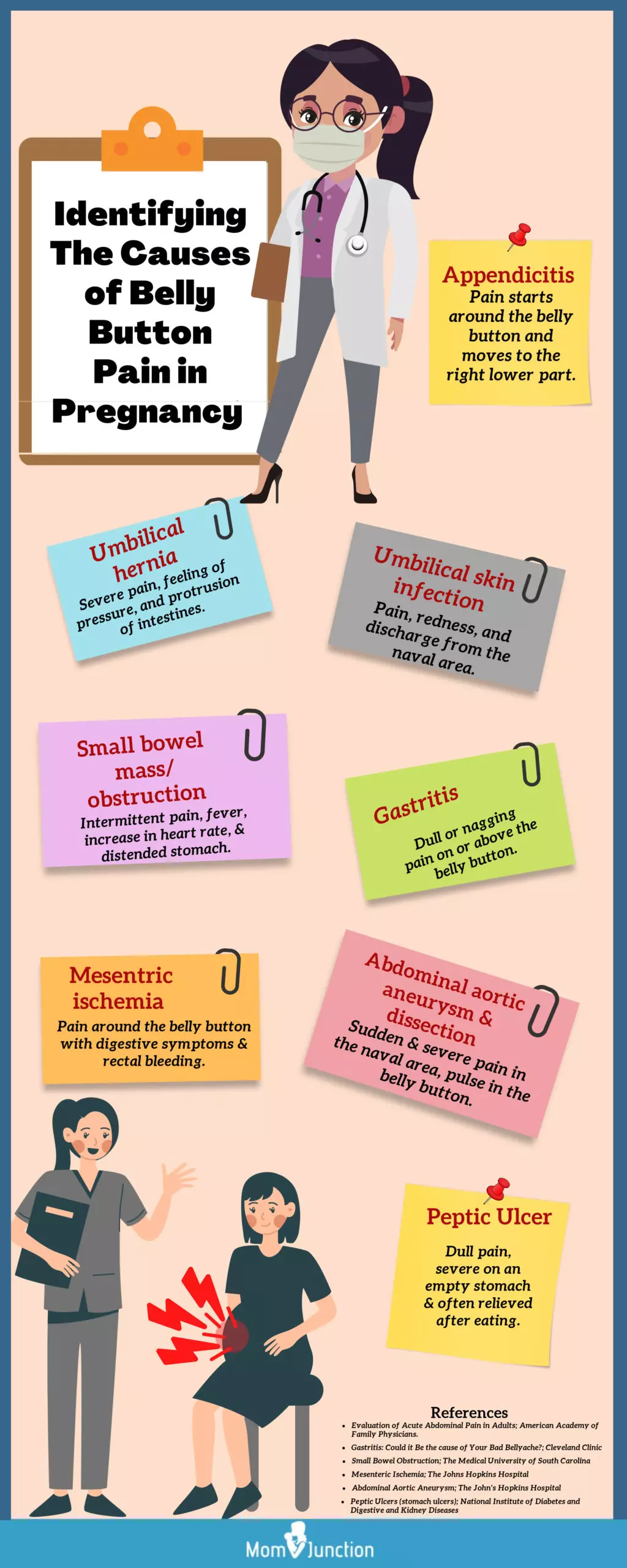
Personal Experience: Source
MomJunction articles include first-hand experiences to provide you with better insights through real-life narratives. Here are the sources of personal accounts referenced in this article.
i. Diastasis Recti=Mommy Tummy of DOOOM!
https://mygirlsmylifemyworld.blogspot.com/2012/07/diastasismommy-tummy-of-dooom.html
References
- Evaluation of Acute Abdominal Pain in Adults;
https://www.aafp.org/pubs/afp/issues/2008/0401/p971.html - Gastritis: Could It Be the Cause of Your Bad Bellyache?;
https://health.clevelandclinic.org/gastritis-could-it-be-the-cause-of-your-bad-bellyache - Small Bowel Obstruction;
https://muschealth.org/medical-services/ddc/patients/digestive-diseases/small-intestine/small-bowel-obstruction - Mesenteric Ischemia;
https://www.hopkinsmedicine.org/health/conditions-and-diseases/mesenteric-ischemia - Abdominal Aortic Aneurysm;
https://www.hopkinsmedicine.org/health/conditions-and-diseases/abdominal-aortic-aneurysm - Peptic ulcers (stomach ulcers);
https://www.niddk.nih.gov/health-information/digestive-diseases/peptic-ulcers-stomach-ulcers/symptoms-causes - Why belly button pain during pregnancy is still a mystery?
https://utswmed.org/medblog/belly-button-pain/# - Ectopic Pregnancy
https://www.cedars-sinai.org/health-library/diseases-and-conditions/e/ectopic-pregnancy.html#:~:text=A%20pregnancy%20that%20develops%20outside - Why Do Some People’s Belly Buttons Pop Out During Pregnancy?
https://health.clevelandclinic.org/why-do-some-womens-belly-buttons-pop-out-during-pregnancy#:~:text=A%3A%20It%20doesn’t%20happen
Community Experiences
Join the conversation and become a part of our nurturing community! Share your stories, experiences, and insights to connect with fellow parents.
Read full bio of Dr. Uma Mishra
- Dr. Alan Lindemann is an obstetrician and maternal mortality expert, who worked as a clinical associate professor at the University of ND. An alumnus of the University of ND and the University of Minnesota, he is a member of the American College of Obstetricians and Gynecologists and the American Medical Association.
 Dr. Alan Lindemann is an obstetrician and maternal mortality expert, who worked as a clinical associate professor at the University of ND. An alumnus of the University of ND and the University of Minnesota, he is a member of the American College of Obstetricians and Gynecologists and the American Medical Association.
Dr. Alan Lindemann is an obstetrician and maternal mortality expert, who worked as a clinical associate professor at the University of ND. An alumnus of the University of ND and the University of Minnesota, he is a member of the American College of Obstetricians and Gynecologists and the American Medical Association.
Read full bio of Dr Bisny T. Joseph
Read full bio of Rebecca Malachi
Read full bio of Reshmi Das










